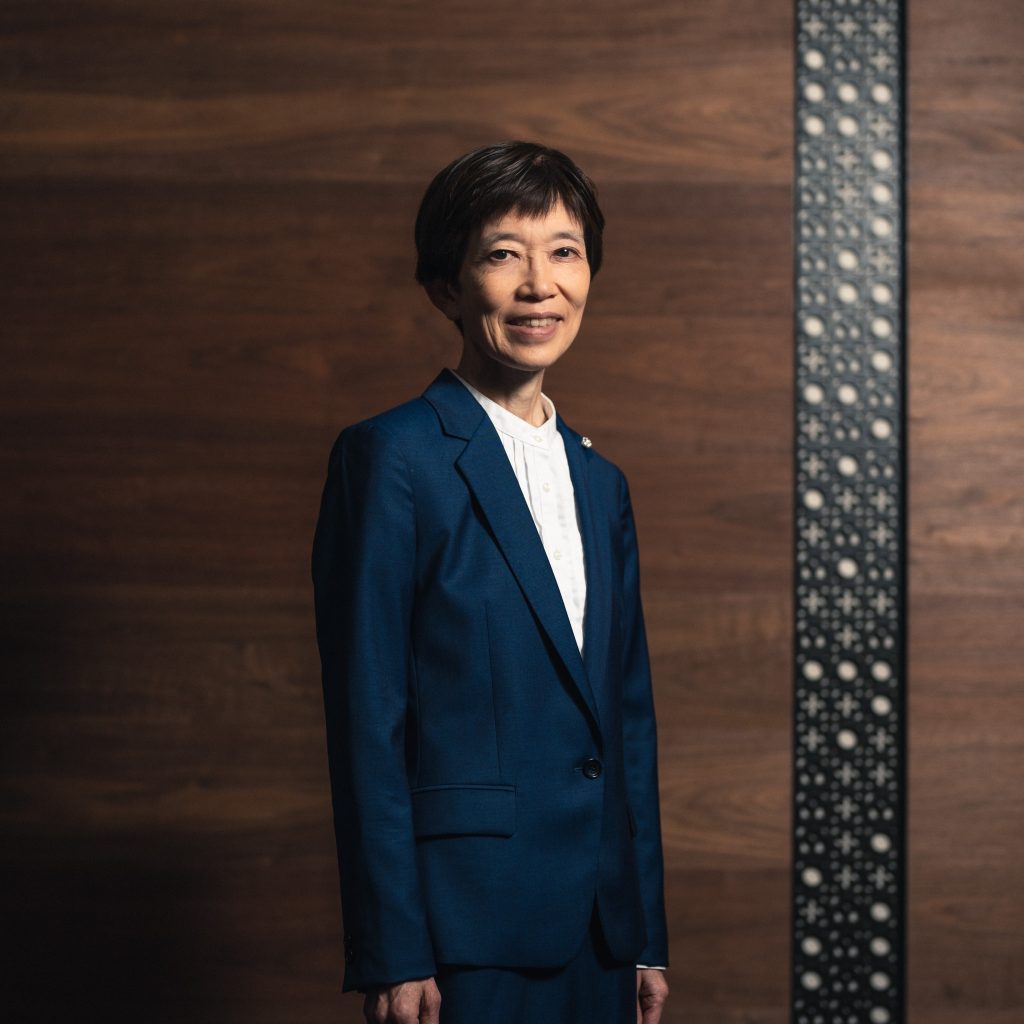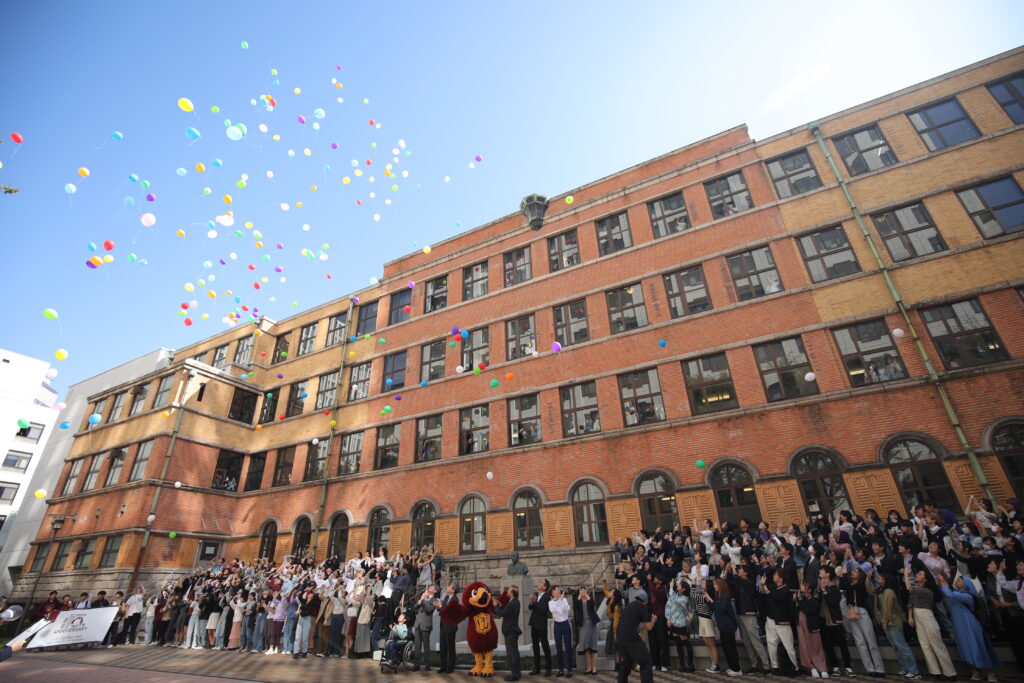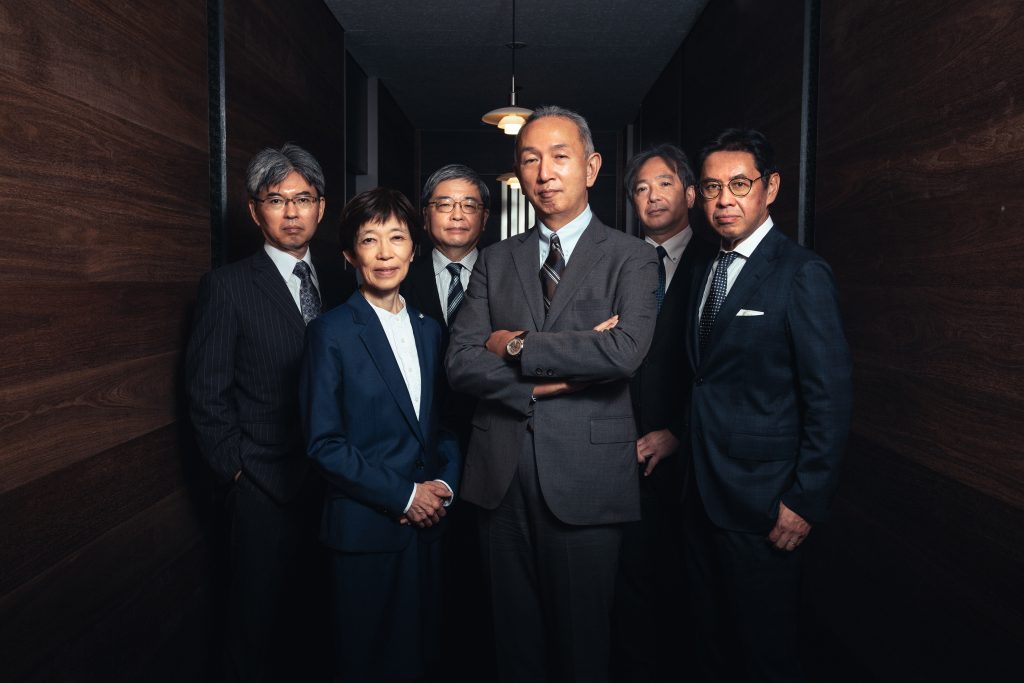Respect for Diversity and Equality Starts on Campus

As conflict and natural disasters continue to disrupt the international community, practicing understanding and tolerance toward others is more necessary than it ever has been. What can universities do to guide the youth who will build our future? How should we understand a campus’s role in students’ growth? Vice President for Student Affairs, Atsuko Nagai, shares her thoughts.
Balloons Soar Over the Campus, Superimposing Students Who Gathered
In October 2023, I participated in the “Balloon Release Ceremony,” one of the events held to celebrate Sophia University’s 110th anniversary. During this event, Japanese and international students gathered on the terrace in front of Building 1 to release colorful balloons into the sky. As I watched, I thought to myself, “The young people here today will eventually settle around different parts of the world. I can only hope they will not fall victim to wars or disasters, and that they will be able to utilize their skills to the fullest extent in a peaceful world.”

There are places in the world today, such as Ukraine and Palestine, that are in dire straits. Many of today’s issues such as poverty, inequality, and environmental problems cannot be solved by a single country. To overcome, or even make the current state of things a little better, acceptance of others and respect for diversity and equality is essential.
A university campus is like a port, with people from diverse backgrounds, various countries, and regions coming together, mingling, and graduating into the world. That is why we must improve campus environments, making them as ideal of an environment as possible.
Volunteering as a way to Redefine “other people’s problems” as “your problems”
While it is important to develop acceptance and empathy for others, it is not easy to suddenly begin viewing “other people’s problems” as “your problems.” However, one opportunity to change your way of thinking is through volunteer work.
Sophia University established its first volunteer organization in 1931. In its pursuit of providing aid for those living in poverty and cultivating the Catholic ethos of philanthropy, the Sophia University Catholic Settlement was established. In 1977, Sophia University went on to establish “Loving Hands for Indochina Refugees, Sophia University” to extend its philanthropic activities into overseas volunteer work. In 1983, the volunteer organization was moved to the Student Affairs Department, accepting applications to volunteer and dispatch students. That same year, Sophia accepted a completely blind student, prompting the start of on-campus braille and sign language volunteer courses to expand the systems that support our fellow students.
Cleaning up a disaster-stricken area, volunteering sign language skills for those with hearing loss, or fundraising for starving children in another country – these experiences broaden interests and perspectives. That is why we hope that young people will volunteer during their student years when their minds are flexible and open to change.
The Importance of Sharing Experiences and Communicating to Foster Cross-cultural Understanding
In terms of promoting mutual understanding, interaction with international students presents an effective opportunity for doing so. Sophia University currently has about 1,900 international students from nearly 100 countries and regions, and there are plenty of opportunities for Japanese and international students to interact daily. On the other hand, we also witness the tight-knit communities that international students form mostly amongst themselves, so it remains questionable as to whether Japanese students are getting the opportunity to deepen their interest in and understanding of different cultures truly.
In recent years, with the increase in the number of foreign tourists visiting Japan, the media has been reporting on “how Japan looks from a foreigner’s point of view.” While this in itself is not a bad thing, I feel that focusing only on the splendor of Japanese culture and cuisine may be encouraging an inward-looking mindset, where the Japanese population is satisfied with itself and loses interest and touch with the rest of the world. At universities, international exchanges need to be about fostering human relationships to discuss global issues and seek solutions together.
To achieve this, Japanese and international students need opportunities to share experiences, engage in dialogue, and learn about each other’s backgrounds. Sophia University has established the Sophia Student Integration Commons (SSIC) within the Center for Student Affairs to promote student exchange. In recent years, SSIC has organized events such as a Hiroshima tour to visit Peace Memorial Park and the Atomic Bomb Dome, an “Islam Week” to experience traditional Islamic culture and visit a mosque, and an online study tour to learn about Ainu culture. In addition, faculty and staff with expertise in Japanese culture also participate in events to expose students to different aspects of Japanese culture, such as Kabuki and Sumo wrestling.
At the same time, to ensure that international students from diverse backgrounds do not spend their student life on campus feeling out of place or uncomfortable, we have a system that allows them to express their concerns at any time. The Health and Wellbeing Center has set up an “Anything Goes Consultation Desk.” Students can ask questions in multiple languages not only about topics like harassment but also about problems for which they do not know where to go for help.
Treasuring the Experiences and Friendships Made on Campus for a Lifetime
As mentioned previously, in an age when mutual understanding, tolerance, and reconciliation are required on a global scale, higher education institutions must make it their mission to contribute to the resolution of conflicts, the eradication of hunger and poverty, and the deterrence of environmental destruction. We believe that this mission should be pursued through education, research, and extracurricular activities on the campuses that institutions develop.
To create the ideal campus, we would like international students to bring the wisdom of their own cultures and simultaneously have Japanese students bring those same elements from Japanese society and culture to realize diversity and equality on campus. We hope that enriching student exchanges will carry students through life and work post-graduation. Above all, we hope that students will develop friendships through activities and conversations with those from different backgrounds and hold onto those treasures throughout their lives.
